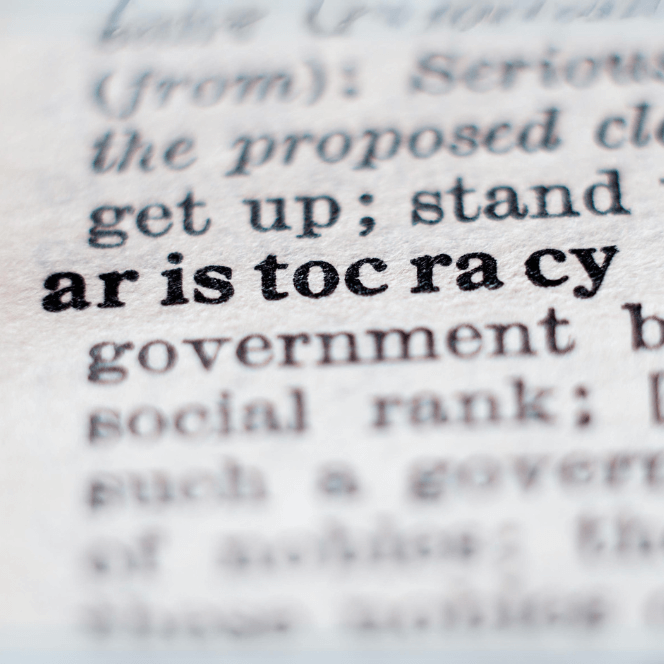Aristocrats have increased their influence within British society over the past 150 years, new research shows.
Hereditary peers are now almost three hundred times more likely than non-aristocrats to be listed in a reference book that records the lives of influential people, the study found.
Dr Matthew Bond and Dr Julien Morton, from London South Bank University, studied the Oxford Dictionary of National Biography, which carries posthumous entries on tens of thousands of people who have significantly shaped British life.
The researchers recorded the number of hereditary peers who died and were then listed in the reference book and compared this to the total number of aristocrats who died. This told them how likely it was for an aristocrat to be listed. They did a similar calculation for the whole population.
One in eight aristocrats who died in the years 2008-18 were added to the reference book, whereas among all the population the figure was one in 2,343. The meant that aristocrats were 292 times more likely to feature in the reference book.
A similar comparison for 1858-1867 found the difference was smaller, at 221, demonstrating how aristocratic influence has grown over the decades rather than waned, as many experts have claimed.
The higher ranking the aristocrats, the more likely they were to be listed in the reference book, with dukes more than twice as likely to feature in the reference book as barons.
Dr Morton told the British Sociological Association’s online annual conference today [Friday 5 April, 2024] that it was “common currency amongst historians and the wider public that the British aristocracy are a fallen group whose wealth, power and status have diminished so substantially that they have become entirely marginal to British life.”
However, the research showed that, “the British aristocracy have seen an increase in their relative advantage compared to the UK population.”
The Oxford Dictionary of National Biography was an important indicator of influence within British society, he said, as aristocrats earned their entries by their actions and were not automatically included.
“There are no real attempts to measure status of elite groups over time by historians, and so the use of something like the ODNB becomes particularly powerful and important. There is a higher bar of entry for the ODNB, higher than for Who’s Who, where, for example, aristocrats are automatically included.”
Dr Bond said: “What can explain these results? It could be the aristocrats’ historical closeness to political power. It could be that they are using connections to old boys’ networks. It could be that the hereditary aristocracy pulled back from out-and-out fights with the forces of democracy after the early 20th century, and instead concentrated on less visible forms of power such as wealth and status.”
The current edition of the Dictionary has more than 60,000 entries. The General Editor is the distinguished historian, Professor Sir David Cannadine, working with more than 50 expert editors and more than 400 external advisers. It is published by Oxford University Press.
- Because deceased aristocrats were likely to be aged 35+, the researchers used the total number of deaths of people aged 35+ in their calculations, to avoid the distorting effect of the large number of child deaths in the 19th century. The researchers also discounted aristocrats who were the first in their line to be entered into the ODNB, because they likely received their titles as rewards for achievements prior to becoming a member of the hereditary aristocracy and so could not have benefited from advantage the title bestowed.
The absolute figures for the two decades studied are:
Number of aristocrats who died in 1858-1867 – 149
Number of aristocrats who were then listed in the ODNB in 1858-1867 – 31
Number of all Britons aged 35+ who died in 1858-1867 – 2,118,804 (approximate)
Number of all Britons who were then listed in the ODNB in 1858-1867 – 1992
Number of aristocrats who died in 2008-2018 – 224
Number of aristocrats who were then listed in the ODNB in 2008-2018 – 28
Number of all Britons aged 35+ who died in 2008-2018 – 6,099,029 (approximate)
Number of all Britons who were then listed in the ODNB in 2008-2018 – 2,603
For more information, please contact:
Tony Trueman
British Sociological Association
Tel: 0044 (0) 7964 023392
tony.trueman@britsoc.org.uk
Notes:
The British Sociological Association’s annual conference takes place online from 3 to 5 April 2024. Around 500 research papers are presented. The British Sociological Association’s charitable aim is to promote sociology. It is a company limited by guarantee, registered in England and Wales. Company Number: 3890729. Registered Charity Number 1080235 www.britsoc.co.uk


